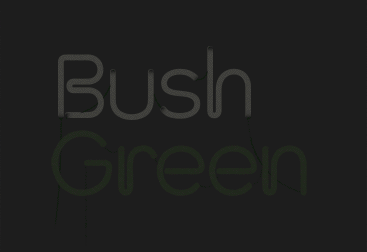RADAR 2013: Guest Blog One Maddy Costa
Wed 13 Nov 2013 |
Our Plays
Excuse me, would you have…?
Excuse me, would you have time to answer a…?
No, sorry.
When Jake Orr and I set up Dialogue 18 months ago, it was with the grand but somewhat abstract ambition of forging new conversations between people who make, watch and write about theatre. Instead of knocking out review after review of press night after press night, we’d pay attention to the process of making theatre, discuss theatre with people who think they lack the language or the forum to do so, question everything about the ways in which theatre is made, staged and experienced. We’ve had successes, we’ve had failures. And it’s fair to say our first day of experiment at the heart of Radar fell squarely in the latter camp.
Excuse me, would you have time to answer a couple of questions?
I can’t, I’m in a hurry.
I need to get somewhere.
I’m on my way to work.
The plan was this: we’d spend a few hours in Shepherd’s Bush, asking people what the words theatre and community mean to them. How hard could it be? In the week preceding this Radar adventure, I’d seen Hannah Nicklin and Company perform a scratch version of a new punk-rock-agit-prop-social-documentary-theatre-gig, Songs for Breaking Britain, a set of songs whose lyrics were a collage of and response to material gathered by interviewing people on the streets of Kennington, south London. And I’d seen Bryony Kimmings on stage at the Bush performing Heartache.Heartbreak, a very funny compilation of live-art-interpreted cures for heartbreak, gathered by interviewing people in the shops and streets surrounding the theatre building. Kimmings had 104 skits/suggestions/songs – 104! Surely Jake and I would manage to talk to 10 people. Minimum.
Would you have a minute to chat?
Er…
It’s about theatre and community.
Sorry, no comprendo.
I’ve said it was a failure, and it was, because we had only two conversations, despite approaching about 50 people. One was with a young woman from Cornwall, who has been in London for about 18 months. In Cornwall, she felt part of a strong community – she’d grown up there, gone to school there. Theatre had been integral to that community: lots of participatory projects, lots of work that was made specifically for local people. She hadn’t found anything equivalent in east London. The other was with an older woman, from Dublin, who has lived most of her life in Notting Hill. She used to be part of a community there: the adults all had children at school together, and would gather in communal gardens for picnics and barbecues. Then “the Russian oligarchs” moved in. Her children grew up. Her husband died. She’s not part of a community any more. As for theatre: the tickets are too expensive. And no one she knows wants to go.
Excuse me, would you have time to answer a couple of questions?
What about?
We’re doing some research about theatre –
I don’t know anything about theatre.
Oh. And, uh, community.
I don’t know anything about community either.
With every passing minute, our respect for Hannah, for Bryony, for anyone who ever makes work that involves talking to strangers in public places, soared. We got much more of an insight into the difficulties of making work this was way than we might have by tagging along to document someone else doing it. And as our appreciation increased, so did our desire to scuttle back to our desks: there’s a reason we’re writers, Jake muttered grimly.
In which case, why did we do this at all? As a critic, increasingly I find myself thinking about the temporary communities forged by theatre, what audiences brought together in a public space might be inspired to do. Increasingly, I’m aware that the theatre-makers who excite me most want to think with us about how we might change our society for the better. Increasingly, I’m drawn towards the theatres/theatre companies who recognise the need to offer not just excellent work but everything that a vibrant community offers: diversity, space to talk, food to share. And Dialogue exists to expand the role of critic as advocate: not just offering a consumer guide to what’s on stage, but finding new ways to entice people to form a relationship with this art that we love.
However brief, our time on the streets raised all sorts of questions for us. It made us wonder how theatres communicate their offer to local communities, how much they go to people rather than expect people to come to them. It reminded me that some of the most enjoyable experiences in the theatre that I’ve had over the past year have been with the producing company Fuel as part of the New Theatre in Your Neighbourhood project, and at the Young Vic as part of the Two Boroughsproject, both of which aim to forge a sense of community between theatre buildings/artists and people who wouldn’t automatically think of themselves as audiences. It also made us uncomfortably aware of how quickly people form impressions of each other: Jake and I rejected many more people than we approached, on the assumption that they wouldn’t talk to us.
Not him, he’s got headphones in.
Not her, she’s looking at her phone.
Not her, she’s pushing a pram, it’ll be a nightmare for her to stop.
Not them, they’re talking to each other.
Not him, he looks shifty.
Not her, she looks scary.
Not him.
Not him.
Not her.
How much do theatres assume about individuals or social groups in their vicinity? How much do people assume about theatre? What is the negative impact of those assumptions? And what can Jake and I, as theatre critics, do to get involved in or help to create conversations happen? Although difficult, our brief encounter with Shepherd’s Bush has spurred us to find out.


